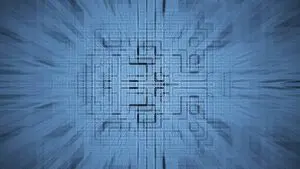When time enters the equations, the ability of a material to store or release heat becomes a crucial parameter. This issue's technical data column is devoted to a basic understanding of thermal capacitance. Thermal capacity (or heat capacity) is defined as: Cth = V � � cp [J/K] where: V =Volume (m3) = Density (kg/m3) cp = Specific heat (J/kgK) at constant pressure (the … [Read more...]
The Weakest Link in Air Cooling
So far, this 21st Century has been a big disappointment. I grew up on the science fiction of the 1950's and 60's. Plus I knew that the stories of Jules Verne and H. G. Wells had turned out to be amazingly accurate predictions of real technological advances. So I was expecting that, if I lived long enough to see the 21st Century (no way - I'll be in my 40's!), I'd be … [Read more...]
How Much Heat can be Extracted from a Heat Sink?
Thermal transport from a heat sink creates a unique condition in heat transfer and fluid flow once it is placed on a PCB in an unducted fluid flow delivery system. Although a heat sink may appear structurally simple, the fluid flow through its fin field and thermal coupling between it and the surrounding create a rather complex problem. As a result, heat sinks are often … [Read more...]
Effective Thermal Design for Electronic Systems
In the past, the thermal designer's role was seen as one of predicting temperatures and ensuring that reliability limits are met for products. However, the role of an effective thermal designer is much more than that. We believe that thermal designers are both critical and most useful in the early conceptual stages of product design. This is where they provide the most "bang … [Read more...]
Estimating Parallel Plate-fin Heat Sink Pressure Drop
In the last issue of ElectronicsCooling a methodology was presented for estimating parallel plate-fin heat sink thermal resistance [1]. The method presented assumes that the air flow rate is given, either in terms of the average velocity, V, between the fins or a volumetric flow rate, G. Although this methodology was shown to be useful in examining the effects of heat sink … [Read more...]
- « Previous Page
- 1
- …
- 144
- 145
- 146
- 147
- 148
- …
- 180
- Next Page »










